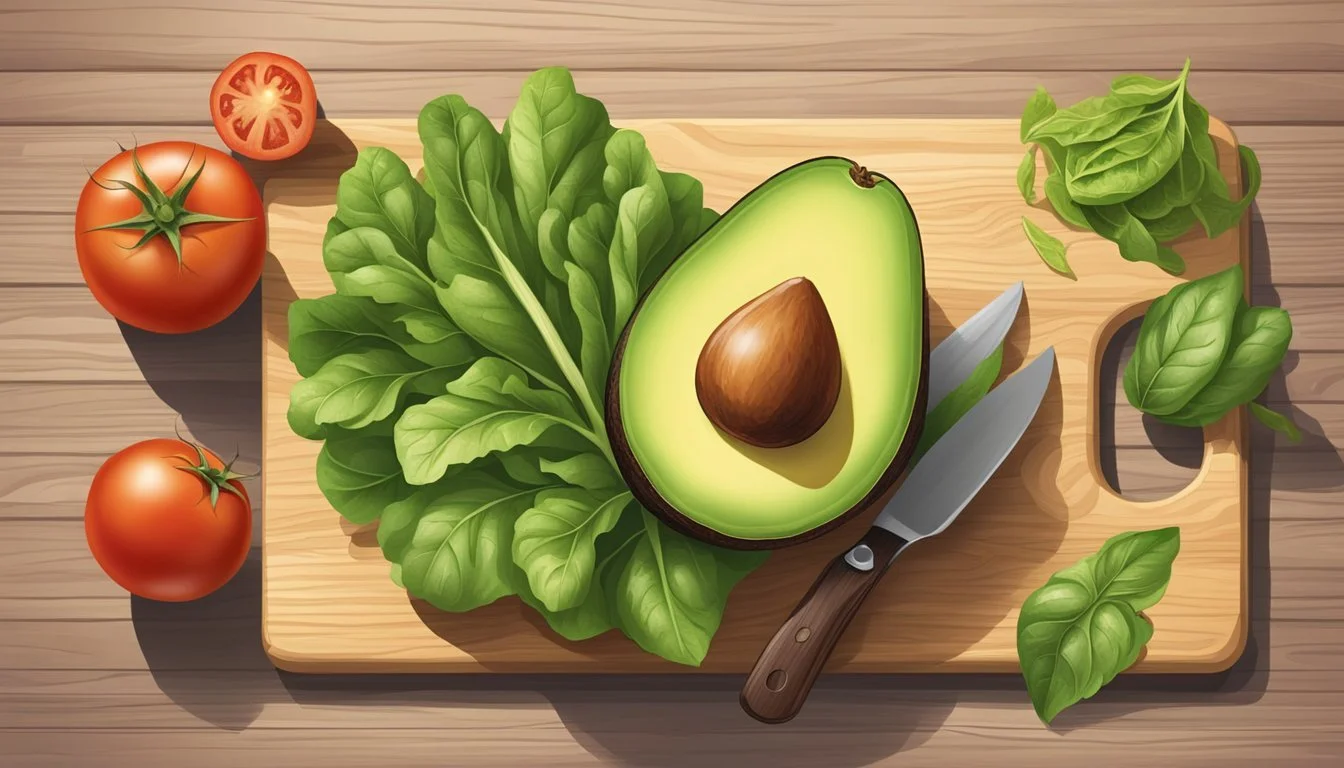Belly-Friendly Foods to Combat Bloating and Discomfort
Bloating is an uncomfortable condition that many people experience at some point in their lives. It can be caused by a variety of factors, including dietary choices and digestive issues. Fortunately, certain foods can help alleviate the discomfort and reduce bloating.
Eating the right foods can significantly help in reducing bloating by addressing its underlying causes. These foods work by improving digestion, reducing gas, and promoting a healthy gut. Incorporating these bloat-busting foods into your diet can make a noticeable difference in how you feel.
1) Ginger Tea
Ginger tea is a popular and effective remedy for bloating. Its anti-inflammatory properties and the presence of the compound gingerol help relieve digestive issues.
Making ginger tea is simple. Peel and slice a piece of fresh ginger root, about 2 inches in size. Place the slices in a cup and add hot, but not boiling, water.
Allow the ginger to steep for approximately 10 minutes. This process ensures that the beneficial compounds are fully extracted. Drinking ginger tea can help soothe the stomach and reduce gas and bloating.
Adding a small amount of honey or lemon can enhance the taste and add extra health benefits. Many people prefer to drink ginger tea daily to maintain digestive health.
2) Peppermint Tea
Peppermint tea is widely known for its soothing properties, particularly for digestive issues. It can help alleviate symptoms such as bloating, indigestion, and irritable bowel syndrome (IBS). The antispasmodic activity of peppermint works to relieve muscle spasms in the digestive tract.
The tea contains peppermint oil, which has antibacterial, antiviral, and anti-inflammatory properties. These characteristics contribute to reducing discomfort in the digestive system. Drinking peppermint tea can also help ease nausea and improve breath.
To prepare peppermint tea, fresh water should be brought to a boil. Pour the hot water over 1-2 teaspoons of peppermint leaves per cup. Let the mixture steep for 5-10 minutes before straining. Some prefer to sweeten with honey or stevia.
In addition to its digestive benefits, peppermint tea can help relieve clogged sinuses. Its relaxing effects on the digestive system make it a popular choice for those seeking natural remedies for stomach discomfort and bloating.
3) Papaya
Papaya is well-regarded for its efficacy in reducing bloating. This tropical fruit contains digestive enzymes like papain, which help break down proteins, making digestion smoother and less likely to cause gas.
Rich in dietary fiber, papaya aids in the regularity of bowel movements. This helps prevent constipation, a common cause of bloating and discomfort.
Papaya also boasts a high content of water, which helps maintain hydration and supports the digestive system in absorbing nutrients more efficiently.
Additionally, the fruit is a good source of vitamins and minerals, including vitamin C and beta-carotene, contributing to overall gut health. Consuming papaya regularly can be a natural way to alleviate bloating symptoms.
4) Fennel Seeds
Fennel seeds are often recommended for relieving bloating and digestive discomfort. These small seeds are known for their ability to reduce gas and improve overall digestion.
Chewing on fennel seeds can help enhance gastrointestinal motility and prevent gas from getting trapped in the intestines. This action aids in the smooth passage of food and gas through the digestive tract.
Fennel seeds possess anti-inflammatory properties, which can soothe irritation in the intestines. This can help reduce swelling and discomfort associated with bloating.
The seeds are also known to relax the muscles in the intestines. This relaxation can ease cramps and allow for better digestion, helping to alleviate bloating.
Incorporating fennel seeds into the diet is simple. They can be chewed raw after meals or added to teas. Breast-feeding mothers can consume fennel seeds to help relieve colic in infants, as the benefits pass through breast milk.
Overall, fennel seeds offer a natural way to address gas and bloating, making them a valuable addition to any diet aimed at improving digestive health.
5) Asparagus
Asparagus is known for its anti-bloating properties. This vegetable contains a compound called asparagine, which acts as a natural diuretic. This means it can help to flush out excess water and reduce bloating.
Rich in nutrients, asparagus provides vitamins A, C, and K. These vitamins support overall health while contributing to its anti-bloating effects.
The high water content in asparagus also aids hydration, which is essential for reducing bloating. Hydration helps to keep the digestive system functioning smoothly, preventing constipation.
Additionally, asparagus contains a modest amount of fiber. This can help soften stools and promote regular bowel movements, further reducing bloating.
Including asparagus in meals is simple. It can be steamed, grilled, or added to salads and stir-fries. This makes it a versatile addition to any diet.
6) Greek Yogurt
Greek yogurt can be an effective food for reducing bloating.
It is known for its high levels of probiotics, beneficial bacteria that support gut health. These probiotics help balance the digestive system and reduce bloating by aiding in more efficient digestion.
People who are lactose intolerant may experience bloating from Greek yogurt due to its lactose content. However, others find it helps reduce bloating due to the probiotics.
For those who follow a plant-based diet, dairy-free Greek yogurt alternatives made from soy, coconut, or almond milk are available. These can offer similar probiotic benefits without the lactose.
Choosing plain Greek yogurt with active cultures can maximize digestive benefits. Adding fresh fruit can enhance its flavor without adding excess sugars that may contribute to bloating.
Incorporating Greek yogurt into a balanced diet may support overall digestive health and reduce bloating for many individuals.
7) Bananas
Bananas are a well-known remedy for bloating. They are rich in potassium, which helps regulate sodium levels in the body, reducing water retention. This makes them effective in minimizing bloating.
In addition to potassium, bananas contain soluble fiber. This type of fiber helps maintain regular bowel movements, reducing digestive discomfort. However, consuming them in moderate amounts is key.
Some people may experience bloating from the fiber and starch in bananas, especially if they eat them in large quantities. It's best to observe how your body reacts and adjust your intake accordingly.
Overall, bananas offer a balanced approach to managing bloating through their nutrient profile. They are easily accessible and can be incorporated into various meals and snacks for added convenience. Their natural sweetness makes them a versatile addition to any diet.
8) Kiwi
Kiwi is well-regarded for its digestive benefits. This small, green fruit contains actinidin, an enzyme that helps break down proteins. This can aid in the digestion of complex foods, potentially reducing the bloating associated with them.
Rich in fiber, kiwis can promote regular bowel movements. Proper digestion and regularity can help minimize the build-up of gas and bloating. This makes kiwi a great addition to a diet aimed at reducing digestive discomfort.
Kiwis are also packed with antioxidants and vitamin C. These nutrients support overall digestive health and help the body manage oxidative stress, which can affect digestion. Consuming kiwi regularly can be a simple way to support your gut health.
9) Cucumber
Cucumbers are high in water content, which can help reduce bloating by keeping the body hydrated.
The hydration effect of cucumbers helps the digestive system function more smoothly. It can assist in flushing out excess sodium, which is a common cause of bloating.
Cucumbers also contain compounds like cucurbitacin, which may help reduce inflammation in the digestive tract.
This mild anti-inflammatory property can soothe an irritated stomach and help alleviate bloating. They are easy to incorporate into various dishes, making them a practical option for anyone looking to reduce digestive discomfort.
Eating cucumbers raw, adding them to salads, or even infusing water with cucumber slices are simple ways to include this vegetable in your diet.
Their low-calorie content and high nutritional value make cucumbers a beneficial component of a balanced diet aimed at reducing bloating.
10) Avocado
Avocado is a nutrient-dense fruit that can help alleviate bloating. It is high in healthy fats and potassium, which play a vital role in maintaining fluid balance in the body. This reduction in fluid retention can decrease bloating.
The fiber content in avocados supports digestive health by promoting regular bowel movements. A single avocado contains approximately 10 grams of fiber, aiding in the prevention of constipation, a common cause of bloating.
Avocados are also rich in other essential nutrients like magnesium and folate. Magnesium helps relax the muscles of the gastrointestinal tract, potentially reducing bloating and discomfort. Meanwhile, folate assists in overall digestion and absorption of nutrients.
Regularly including avocado in a diet can contribute to improved gut health and reduced symptoms of bloating. It can be consumed as a spread, in salads, or simply eaten on its own. This versatility makes it easy to incorporate into various meals.
Understanding Bloating
Bloating often involves swelling or a feeling of fullness in the abdomen. It can be caused by a variety of factors and exhibits specific symptoms that can affect daily life.
What Causes Bloating?
Bloating is primarily caused by excess gas production in the stomach or intestines. Dietary choices play a significant role. Foods like beans, lentils, and certain vegetables, such as broccoli and cabbage, are common gas producers. Carbonated beverages can also introduce extra gas into the digestive system.
Eating habits contribute as well. Rapid eating, not chewing food thoroughly, and chewing gum can lead to swallowing more air, resulting in bloating. Constipation is another cause, as it can prevent the proper expulsion of gas and waste from the body. Hormonal changes, especially in women, often lead to bloating during menstruation cycles.
Common Symptoms of Bloating
Bloating often presents as a visibly swollen belly. Discomfort and pain are common, sometimes described as a tight or full feeling in the abdomen. Excessive gas or frequent belching can also indicate bloating.
Another symptom includes changes in bowel habits, such as constipation or diarrhea. Feeling full quickly when eating can be a sign of bloating, as can rumbling or gurgling sounds in the stomach. These symptoms can have a significant impact on daily activities and overall well-being, making them important to address.
Dietary Changes to Reduce Bloating
Making strategic dietary changes can play a significant role in mitigating bloating. By avoiding certain foods and incorporating others, individuals can achieve a more comfortable digestive experience.
Foods to Avoid
Certain foods are known to contribute to bloating and should be limited or avoided for better digestive health. Carbonated drinks can introduce excess air into the digestive tract, leading to discomfort. Additionally, foods high in sodium, such as processed snacks, can cause water retention and bloating.
Artificial sweeteners, like sorbitol and xylitol, may not be fully absorbed by the intestines, causing gas. Cruciferous vegetables, such as broccoli, cabbage, and Brussels sprouts, contain raffinose, a sugar that produces gas when fermented by gut bacteria. Finally, legumes like beans and lentils are rich in fiber and some sugars that can result in bloating if consumed in large quantities.
Beneficial Foods
Incorporating certain foods can help reduce bloating by promoting efficient digestion and minimizing gas formation. Berries, such as blueberries, blackberries, raspberries, and strawberries, offer high levels of fiber and water content, aiding in hydration and digestion. Including these in the diet can keep the digestive system moving smoothly.
Watermelon, with its high-water content, helps in rehydration and reducing bloating. Foods rich in probiotics, such as yogurt and kefir, introduce beneficial bacteria to the gut, promoting a healthy digestive environment. Ginger is another helpful food; its natural anti-inflammatory properties can relax the digestive tract and reduce bloating.




